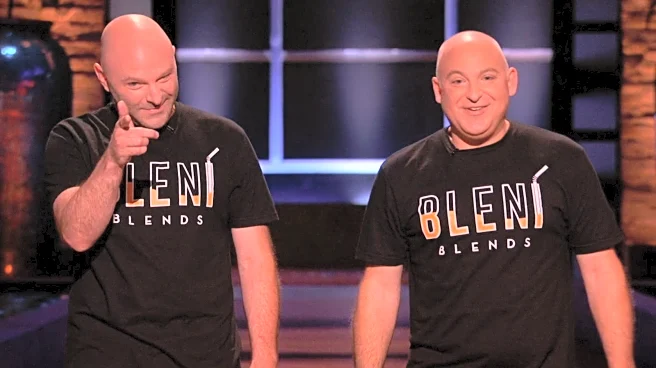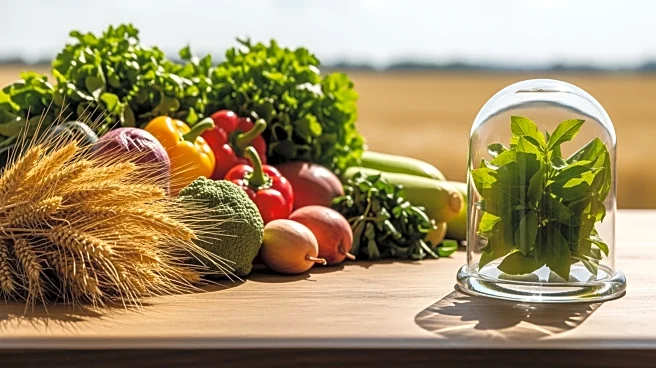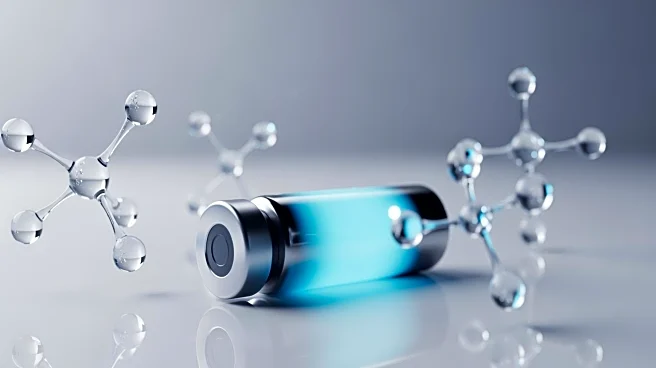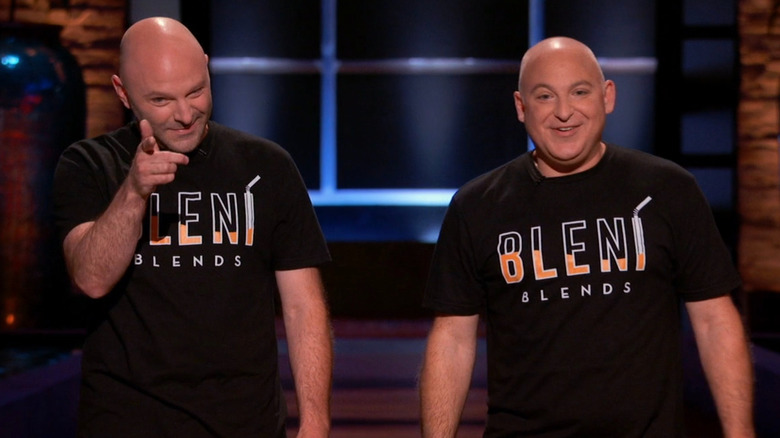
It's not uncommon to see vending machines populate work and recreational spaces. While these offer convenience for those seeking a quick snack, they rarely if ever contain anything of substantial nutritional value. Wanting to add a fresh spin to this concept, brothers Stuart and Peter Shapiro developed Bleni Blends, a self-serving kiosk that produces a variety of fruit smoothies and iced coffees free of added sugars, preservatives, and gluten.
With backgrounds in real estate and business affairs,
the Pennsylvania natives felt that the automated retail industry possessed the potential for growth and innovation they were looking for as they began their entrepreneurial journey. Their first step in this space was through a frozen yogurt machine business called Robotic Desserts that got its start in 2016. In 2019, they gained the U.S. exclusive rights to sell Bleni Blends after seeing a prototype in Canada, seeing it as a way of providing people with a healthy option in public spaces.
From Season 10s Saucemoto car sauce holder to Season 15s RoboBurger vending machine, Bleni Blends was far from the first nor the last high-tech food product to appear on "Shark Tank." But few had appeared who presented as much dedication to their product as the Shapiro brothers, with the two putting in all their resources to maintain as much control as possible. Their vigor caught the interest of Daniel Lubetzky and Lori Greiner, but not without a hefty price tag.
Read more: Every Major Air Fryer Brand, Ranked Worst To Best
What Happened To Bleni Blends On Shark Tank?
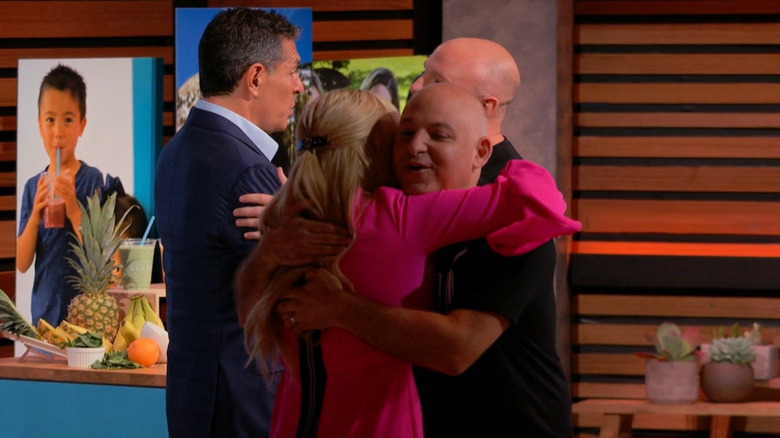
The Shapiro brothers sought a $250,000 investment for 6% equity. The Sharks were thoroughly impressed with their smoothie samples and were shocked to learn that they contained no added sugars or sweeteners. The duo shared that the overseas manufacturer allowed them exclusive U.S. rights to Bleni Blends for the product's 15-year patent life.
They had 41 working machines in operation and another 20 units in their warehouse. The most prolific of their machines had been generating upwards of $8,000 a month. Their smoothies were priced at $5.25 on average and cost $1.40 to produce. The machines cost $19,500 and sold for $30,000 each, providing the team with a 35% profit from each sale. The company as a whole had brought in $465,000 since 2020 and had projections of hitting $1.5 million. The brothers invested $1.2 million of their own money into the business and Stuart even sold his home, allowing them to maintain greater control over the supply chain and maintenance contracts.
The duo hoped to ramp up production and eventually purchase the IP entirely so they can dictate where manufacturing takes place. Although many of the Sharks admired the entrepreneurs, they found it too risky to invest in such an endeavor, with Kevin O'Leary, Daymond John, and Mark Cuban going out. Daniel Lubetzky and Lori Greiner decided to take a chance on the company but only for 35% equity. After some back and forth, all parties agreed on the $250,000 for 25% and a $500,000 line of credit contingent on the accuracy of their information.
Bleni Blends After Shark Tank
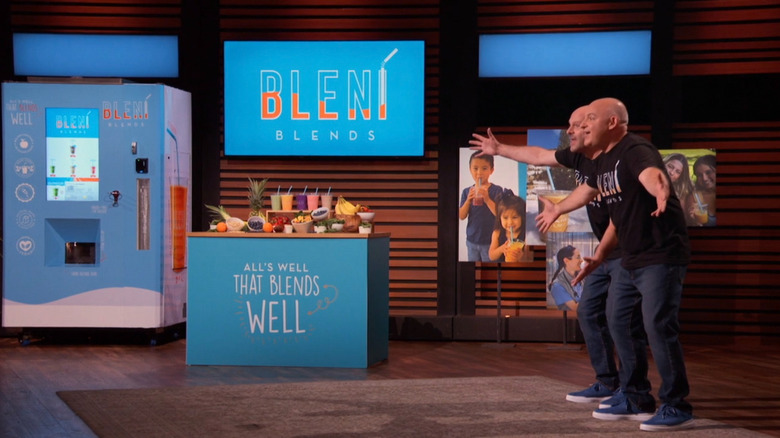
Stuart and Peter Shapiro's "Shark Tank" victory was nevertheless a risky move on both sides. Along with the investors having lots of work to do to scale the operation, the entrepreneurs had given up far more equity than they were expecting. Shaky terms like this can often lead to a deal not closing, which would end up being the case for Bleni Blends.
Bleni Blends' episode aired on March 31, 2023. The business received newfound attention and sales leading up to and following the broadcast. The brothers viewed the growth as a positive sign that they could operate without needing to give up so much, as Stuart explained in a 2025 interview with Mainline Today. "The show definitely opened new doors and relationships, but we never closed on a deal," he said. "For those who watch, you often don't know the reality—the majority of the deals never close. It's a handshake on TV. From when we made the deal on the show until the finer negotiations, our business almost doubled in size. We still have great relationships with the Sharks, and we left on great terms. But we found we could be self-sufficient."
Among the doors that "Shark Tank" opened was a pilot program in collaboration with Robo Cafe to see how Bleni Blends would perform at a Walmart. By this point, the price of their smoothies went up an average of $7. This price point proved to be higher than most Walmart customers were willing to pay, resulting in low sales and an end to the program.
Is Bleni Blends Still In Business?
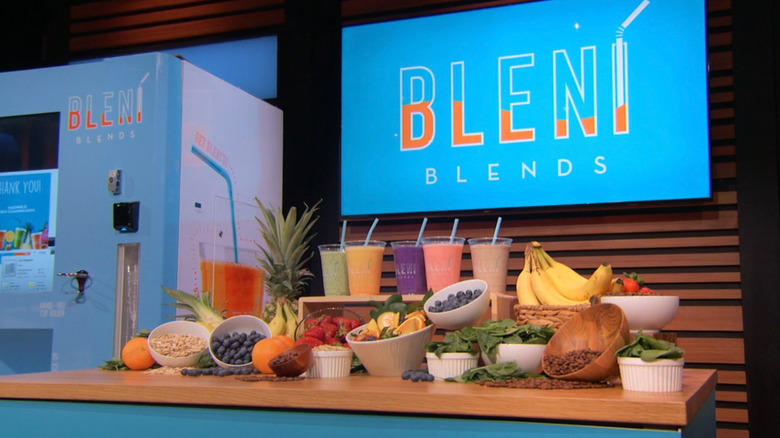
Bleni Blends continues to operate in much the same way presented on "Shark Tank." The company's vibrantly colored machines can be found in a variety of hospitals, college campuses, gyms, and airports. Each machine is cashless, accepting payments through credit or debit cards, common mobile payments such as Apple and Google Pay, and even select campus cards. A majority of its locations are within in the northeastern United States in states such as New York, Pennsylvania, and Ohio. However, it has readily spread across numerous states as well as a select few Canadian locations and even one kiosk stationed in the United Kingdom. A store locator is available on its website, where you can see if there's one near you.
The company currently carries five different smoothie blends with strawberry banana, tropical, green power, pink dragon, and berrylicious, as well as two iced coffee varieties with standard coffee bean and mocha. With the exception of the berrylicious bleni, each smoothie and iced coffee comes in both a standard flavor and a plant-based protein variety with less calories. Retailers can also order or host a Bleni machine through the site, with the company itself handling full installation, training, and maintenance services. Additionally, Bleni Blends carries an array of merchandise such as hats, T-shirts, and hoodies.
What's Next For Bleni Blends?
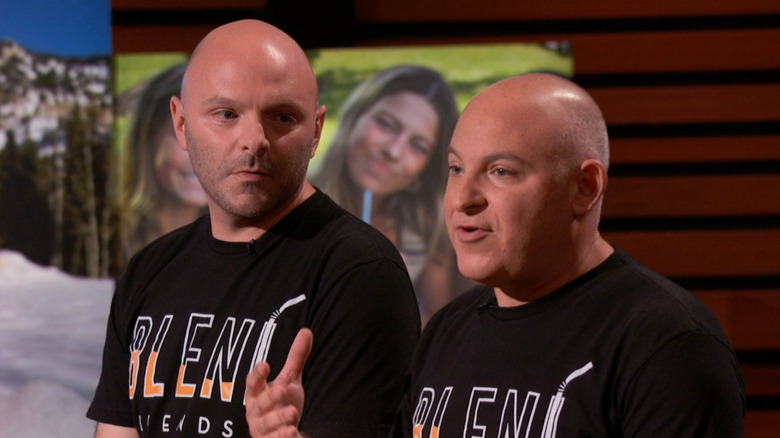
The mission behind Bleni Blends and the journey to get it to where it is now is certainly admirable. Even if it's not as mind-blowing a concept as some of the more high-tech vending machines from around the world, bringing fresh alternatives to spaces that typically only provide sugary snacks nevertheless has great promise in our increasingly health conscious society. The Shapiro brothers have been dedicated to maintaining complete control to ensure that vision is realized, even turning away from two powerful celebrity investors. And while it's easy to wonder how much faster the company's growth would be had the Sharks been on board to this day, that doesn't seem to be on the mind of its founders.
While Bleni Blends has seen its fair share of growth in the years since "Shark Tank," it's still a relatively small operation at the current time, with only around 100 machines spread across its handful of locations. But while the team hopes their company eventually become a household name, they're in no rush to get to that point. Speaking with Mainline Today, Stuart Shapiro commented, "We could sell thousands of machines, but it's not the way we want to grow the company. You'll still see us out on weekends installing and filling machines." Keeping to the mindset, the team has mainly focused on continuing to expand to different locations while introducing new flavors, the most recent as of this writing being the Bleni Colada which was announced in March 2025.
Want the latest in tech and auto trends? Subscribe to our free newsletter for the latest headlines, expert guides, and how-to tips, one email at a time.
Read the original article on SlashGear.
